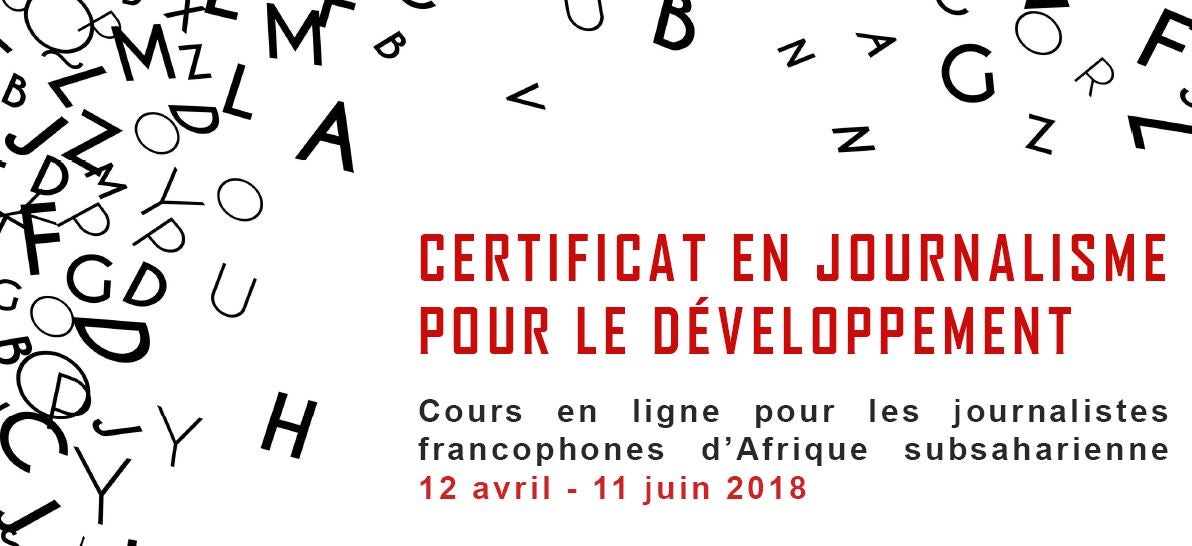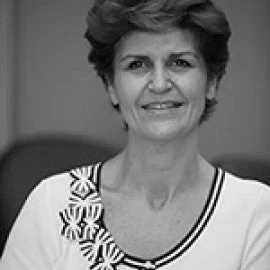When I was based in the field, I often noticed that many of the journalists working in Africa had not been specifically trained to report on development-related matters, which at times hobbled their ability to effectively identify development issues and, by extension, inform the public of the choices and activities implemented in various countries.
So, we came up with the idea of helping journalists receive the best training we could give on the development challenges facing their continent, thus paving the way for “changing the narrative on Africa.”
The World Bank Africa Region introduced a successful, innovative approach to training journalists – a free, online course for 100 journalists from Francophone Africa, who were selected through an application process.
Launched in April 2018, this training course is based on a simple, yet innovative, concept to help journalists hone their development reporting skills by placing at their disposal an impressive cadre of World Bank experts dedicated to sharing their knowledge.
The 10-week online course was developed in collaboration with École supérieure de journalisme de Lille (France) and the Centre d'études des sciences et techniques de l'information de Dakar (Senegal). Focusing on Africa, the course covered several topics pertaining to economic development, sustainable development, and human development, and included recorded videos and videoconferences, combined with an online forum and documentation. About 18 World Bank experts and more than 10 journalists with experience in covering development-related issues contributed to the development of the course content.
It has been an effective formula and one that has lived up to expectations, given the excellent attendance and success rates. Seventy journalists from Francophone Africa completed the program and will be awarded a Certificate in Development Journalism; 12 of them will receive a certificate with honors. This online training approach reduced the cost of traditional, face-to-face training for each journalist by at least 50%. In the final assessment, the journalists were asked to rate the relevance of the training course on a scale of 0 to 10 (10 being “extremely relevant”). The average score was 9.34.
The greatest benefit of this approach, however, is the ease with which it can be replicated.
We extend congratulations to Leonce Gamai, a journalist for the online information site www.banouto.info in Benin, who obtained the highest reporting score and the best average in the various tests administered over the 10-week course. He will be invited to cover the events of International Poverty Day on October 17 in Washington, D.C.
The 12 journalists who completed the course with honors are:
- Ulrich V. Ahotondji (Benin)
- Laba Sebastien Ahouman (Côte d’Ivoire)
- Aline A. Assankpon H. (Benin)
- Jacques Boco (Benin)
- E. M. Emmanuel Creppy (Benin)
- Léonce Gamai (Benin)
- Jacques Gomis (Senegal)
- Alain Iloniaina (Madagascar)
- Seynabou Ka (Senegal)
- Marilyne Ngambo Tchofo (Cameroon)
- Jean-Pierre Sawadogo (Burkina Faso)
- Elimane Sembène (Senegal)
Of the more than 700 individuals who submitted applications for the course, 102 journalists from 17 Francophone countries in Sub-Saharan Africa were selected to participate.
Bravo to all, and we look forward soon to having another class of journalists trained in development issues!


Join the Conversation